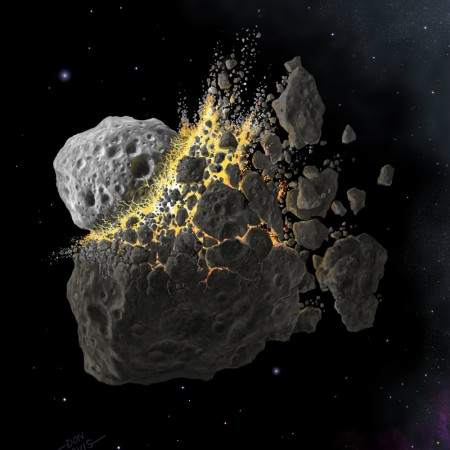NASA, the American space agency has been tracking hundreds of near-earth objects for the past many years and they believe that monitoring these rogue space bodies could help to develop a better action plan to protect humanity in the future. Even in the midst of this vigorous search to detect threats from space, a small asteroid exploded above the Caribbean and NASA had no idea that the rogue body was approaching.
The incident happened on July 22 and this impact reaffirmed the fact that NASA should pay more attention to near-earth objects approaching the earth. Even though the asteroid that exploded above the Caribbean was just three meters wide, experts believe that such a failure to detect approaching space bodies in the future could bring devastating effects on the planet.
"When first spotted, 2019 MO was about 310,000 miles from Earth - farther out than the orbit of our Moon. This was roughly the equivalent of spotting something the size of a gnat from a distance of 310 miles," said NASA in a statement.
Top experts previously predicted that earth will be hit by a doomsday asteroid one day or the other. Dr Iain McDonald, a top scientist at the Cardiff University's school of earth and ocean sciences had claimed that the chances of a possible doomsday asteroid hit are high in the future. As per McDonald, devastating asteroid hits are not confined to the past, and it will happen in the future too.
Lembit Opik, the Chairman of Parliament for the space nation Asgardia also shares similar views, and he believes that the chance of a doomsday asteroid hit is 100 percent in the future. Opik made these remarks while talking exclusively to Express.co.uk.
"It's a matter of life and death. The chance of an impact is 100 percent, you just don't know when. This happens very rarely, but when it happens it's catastrophic and it will wipe out between 70 and 95 percent of all life. That's what seems to have happened before," said Opik.
By Nirmal Narayanan


No comments:
Post a Comment